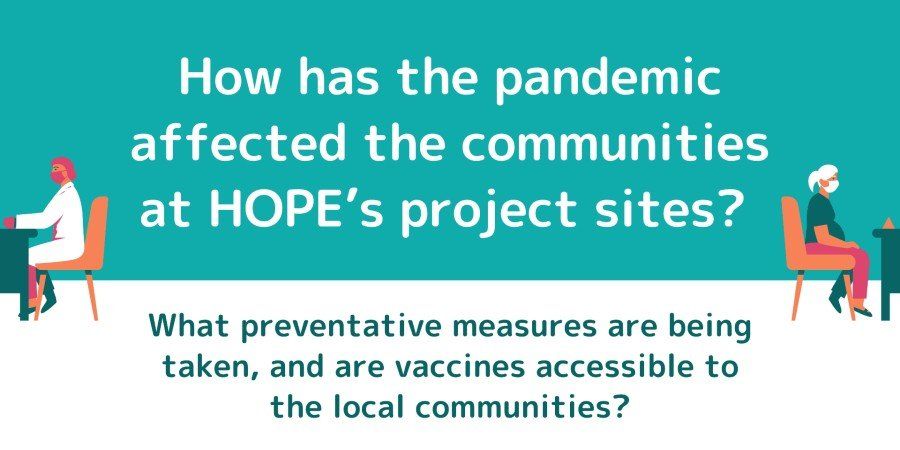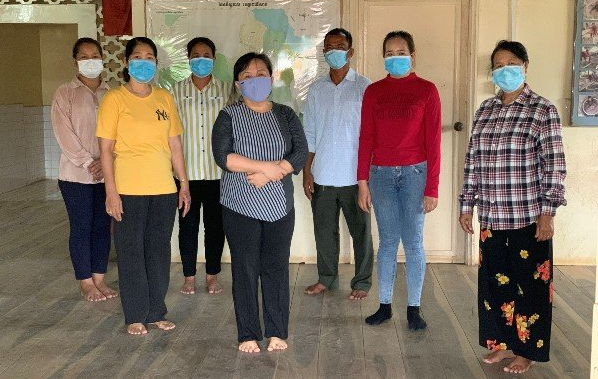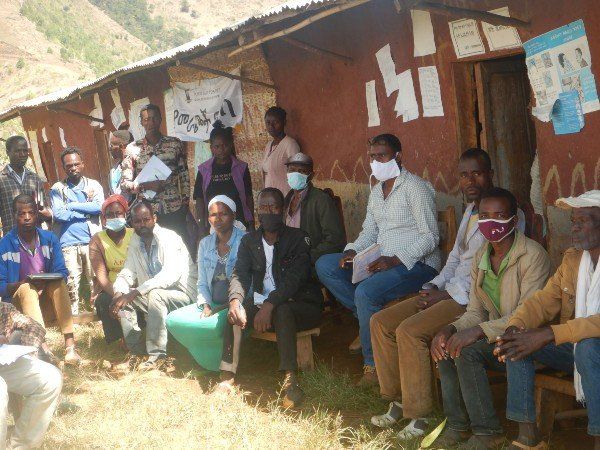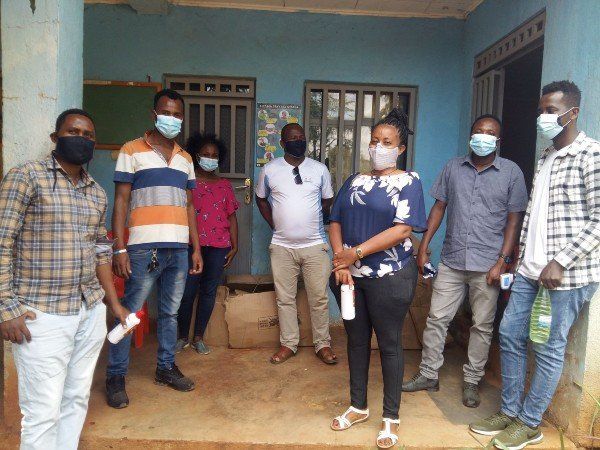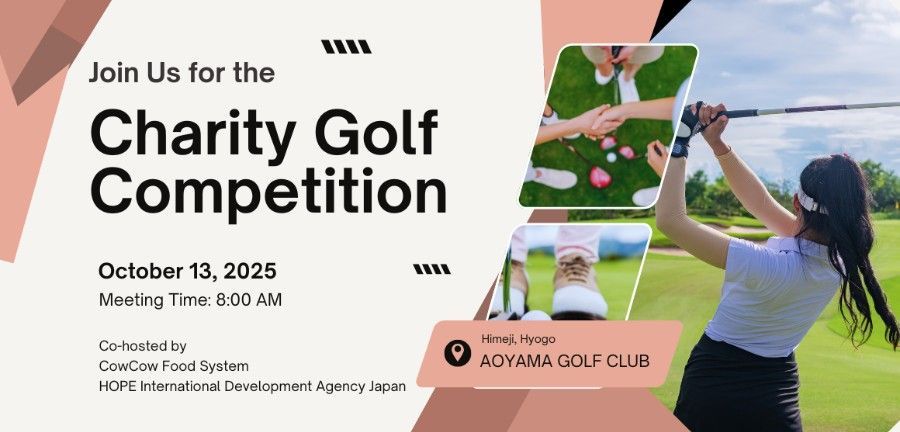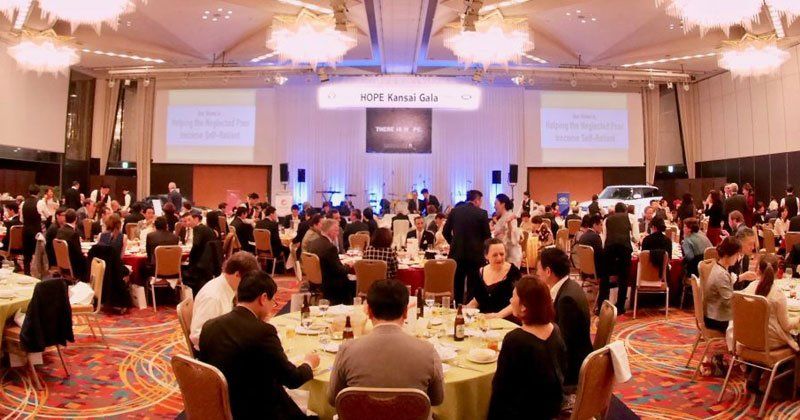The Pandemic's Affects on HOPE Projects
The pandemic is still raging relentlessly. Amongst the anguish that it is causing to our medical professionals and the problems to the economy, will the vaccines shine a ray of light of hope?
Travel abroad is also restricted, and our HOPE Japan field staff have been unable to visit the project sites for over a year. We are kept up-to-date through regular reports shared from the field but how are the local communities actually doing and how have their lives been affected by the pandemic …, we have a lot of concerns.
What is the local situation like in Cambodia and Ethiopia? We asked our local staff.
Cambodia
We spoke about the current state of the pandemic with Ly, the Director of HOPE Cambodia.
It appears as though the number of infections have gone up since the start of the year.
Ly: With the arrival of the third wave, a lockdown was put in place from late February to May 6th of this year. In the capital, Phnom Penh, 80% of shops, businesses and government offices have been closed since February. Since the state of emergency varies from state to state, cross-state travel was also prohibited.
These days, you can get information on the state of the pandemic not only of Cambodia but also of all the countries around the world through social media channels, cable TV, YouTube, and so on. There is some information that is questionable but the people here are being cautious about the pandemic.
Schools have also been closed since February and they are strictly regulated, especially in the urban areas. The Ministry of Health has not announced when they will lift the restrictions as of yet.
Please describe what the situation is like at our project sites in terms of infections.
Ly: According to the Pursat Department of Health, the first infection in the state was confirmed on April 5th of this year. As of May 24th, the cumulative number of infections stood at 86 and 1 death was reported.
How are the communities doing at our project sites? Can HOPE staff visit them?
Ly: Our staff continues to visit the project sites, although less frequently than before the pandemic. During their visits, they wear masks and take some rubbing alcohol with them. Since our work hasn’t ceased, sometimes we conduct discussions in small groups of 5 to 7 people to talk about the project’s progress in the field, but the local communities are careful of coronavirus prevention measures and wear masks, diligently disinfect their hands with alcohol, and practice social distancing.
How is the vaccination drive going?
Ly: Vaccinations began in February and our staff was vaccinated in April. These are provided free of charge. The government intends for everyone to be vaccinated, but many have not yet received them. I just hope that the pandemic will dissipate soon and that everyday life will return to normal.
How is the vaccination drive going?
Ly: Vaccinations began in February and our staff was vaccinated in April. These are provided free of charge. The government intends for everyone to be vaccinated, but many have not yet received them. I just hope that the pandemic will dissipate soon and that everyday life will return to normal.
Ethiopia
We spoke with Awoka, a staff member of HOPE Ethiopia, about what it’s like at our project sites.
In Ethiopia, as of May 20th this year, a total of 268,000 infections have been reported. What is the situation like in the communities at our project sites in terms of infections?
Awoka: So far, there have been no large outbreaks (in the Oyda district). However, there are no facilities nearby where you can get PCR tests, and many people are asymptomatic even if they are infected, so the reality is that even if people at our project sites are infected, they do not notice it.
What kind of preventive measures are taken by the local communities and HOPE staff?
Awoka: Unfortunately, the communities at our project sites are not being careful in taking preventive measures. In rural areas, people tend to downplay pandemics, and some even think it's not half as bad as the flu. We feel that it is necessary to raise awareness through health and hygiene education.
There are no restrictions on site visits at this time, so our staff can still access these communities. Our staff always wears masks, and they also wash their hands, use hand sanitizers, and practice social distancing.
How is the vaccination program progressing?
Awoka: In Ethiopia, 20% of the population is expected to be vaccinated by the end of 2021. Vaccines are free, and in March they have been prioritized for our healthcare professionals, the elderly over the age of 60, and people with chronic illnesses. However, it seems like it will take a considerable amount of time for everyone to get vaccinated because the number of vaccines that are expected to become available in the future is small.
How are school students studying?
Awoka: From March to November last year, all schools in the country were closed. Now they are open and back to normal. During the closure, students in the cities were able to take classes online and through television programs. But when it comes to rural areas where the infrastructure is poor, the story is different. Students were confined to their homes, revealing differences in learning opportunities from urban areas.
How are the local communities doing economically?
Awoka: At first glance, nothing has changed, but national and local government reports indicate that livelihoods are deteriorating and people are getting poorer. The local produce markets also appear to be collapsing.
This is a summary of the condition of the communities at our project sites in Cambodia and Ethiopia.
Vaccinations do not seem to be progressing as much as expected in both countries. Our staff will continue to support the local communities in order to minimize infections, and to ensure that our project work stays on schedule to help improve their lives.

